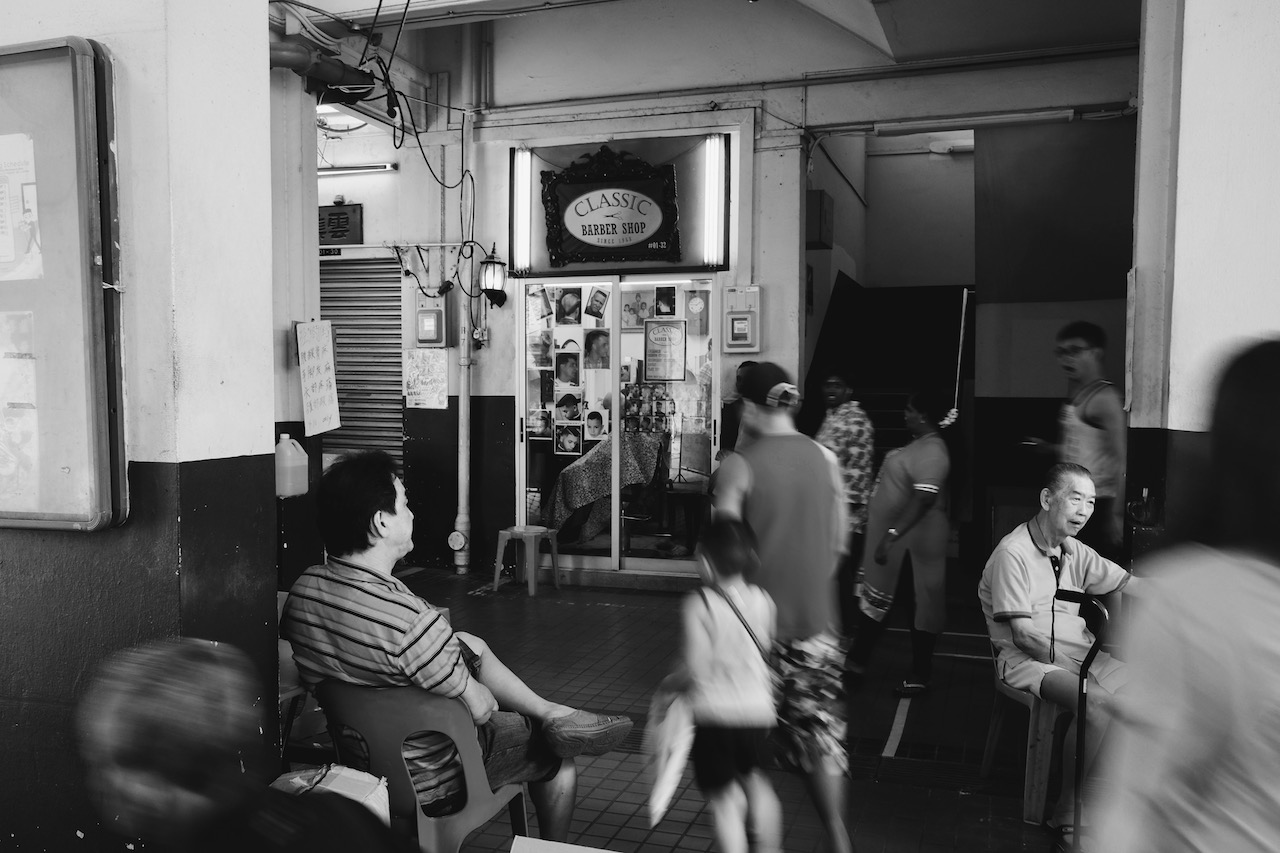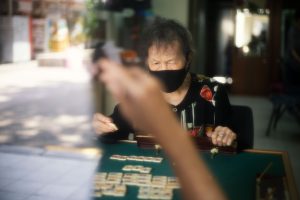This self-prescribed mystery around our names has made haircuts feel like moments isolated from the rest of history. Outside the barbershop, the world changes. Inside, time seems to hold its breath. As old men bicker about 4D numbers, challenging each other to wagers for which the prize is always a zi char dinner and a round of Tiger beer at the coffee shop next door, students line up patiently for $7 hair cuts (a real bargain!).
Sometimes, you can tell by the muted desperation on their faces that they’re only here because of a warning from the discipline master. On weekends, customers dosing off while waiting their turn has become a common sight. Men and boys alike lean on each other through the glass door, and for some reason, it’s always Bon Jovi or Meatloaf on the radio.
Over the years, these barbershops have become relics in their own right. My barber is never in a hurry, and a $10 hair cut can sometimes take as long as half an hour. This has, on occasion, driven frustrated regulars to the nearby EC House which promises to occupy just 10 minutes of your life. Instead of the invigorating shave that concludes every hair cut, establishments like these offer a “vacuuming” service. Sterility replaces the thrill of an open razor.
For guys like this man who still cuts my hair, the term ‘Malay barber’ has become a professional designation—one we still regard with endless affection and respect. Even then, it’s obvious that business has slowed. No longer are people willing to wait around for him to have a cigarette in between customers. The casual banter, the “Had your dinner?” and “Just came back from work?” don’t seem quite worth it anymore.
In the pursuit of tighter schedules, it’s easy to forget the people who, despite not being family, have also watched us grow up.
I never have to tell my barber what I want, and we don’t say much to each other beyond the usual small talk. But this feels real to me.
Nowadays, barber shops have become the domain of young men in fedora hats, white shirts and suspenders. They have become places where you can get a shave, a shoe shine, and even a coffee. At the same time, these places aim to recreate the familiarity and rapport of old-school barbers, albeit for a much, much higher price.
And for a while, I gave these barbers a chance. I forked over $80 for these 11am sessions, and was treated to everything from a wash to a head massage. Because I have very thick and stubborn hair, it was always a struggle for my new barber to style it as a finishing flourish. As much as I appreciated the gesture, I would just head home right after to wash it all off.
At the time, it felt right to be paying this much for a haircut. I was thinking about the person I wanted to become, and how it made sense that my conspicuous consumption shaped not just my identity, but my ambitions as well. As I sat in those plush leather chairs, it was easy to forget that I could just barely afford these quarterly luxuries.
On some level, I was never truly comfortable in these places. I could never really relax, and it always felt strange that I had to then travel the hour it took me to get home, all while being irritated by a collar full of hair. While my hair was being cut, I was always awkward about making conversation. I never knew what to say, and all of this came together like a reminder that this wasn’t who I was at all.
Today, I’m back to getting a trim in my neighbourhood about once a month. I never have to tell my barber what I want, and we don’t say much to each other beyond the usual small talk. While this feels real to me, and feels also like home, I do wonder what things will be like in another 20 years.
Even though our Malay barbers don’t hold the same kind of cultural symbolism that barbers in Black America do, they still have a lot of sentimental value for those of us who grew up having our hair cut in such establishments. Franchises like EC House are driven by profit and efficiency, and this has allowed them to move into heartland spaces that used to be run by owner-operators.
Will we miss these guys only when they’re gone? I guess we’ll find out one day.






